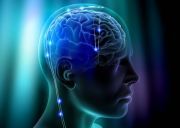Article
Deep Brain Stimulation Puts Personal Identity of Parkinson's Disease Patients at Risk
Author(s):
Two studies raise questions about identity change from deep brain stimulation (DBS) that many clinicians have not considered.

Many patients who have troubling movement disorders find relief from deep brain stimulation (DBS), which is especially true for those with Parkinson’s disease (PD). However, some concerns have been identified with DBS, and the November 2013 issue of Neuroethics contained several articles addressing potential problems.
In “Deep Brain Stimulation and the Search for Identity,” investigators from the Institute for the History of Medicine and Medical Ethics at the University of Cologne in Germany examined the contentions that DBS’s drawbacks are generally misconceived and underestimated, and that patients may experience significant psychological change.
Restricting their research to PD patients, the researchers reported that large trials using standardized tests tended to describe minimal neuropsychiatric changes, while on the other hand, case reports have reported that DBS caused acute depression, hypomania and mirthful laughter, pathological crying, difficult social adjustment, marital problems, and problems in professional life.
The authors provided anecdotal reports from the medical literature and augmented their discussion with comments from Internet chat rooms, where patients often described acquiring or becoming “another person” after DBS. The researchers noted the ethical debate centers on whether the benefit of better motor control outweighs the risk of personal identity changes.
In “Did My Brain Implant Make Me Do It?,” Laura Klaming and Pim Haselager from the Tilburg Institute for Law, Technology, and Society at Tilburg University in the Netherlands also discussed cases of changed personal identity, describing it as “the experience of psychological continuity, of persisting through time as the same person.” They questioned patients’ legal responsibility if undesirable or deviant DBS-induced changes resulted in damage, as well as patients’ ability to give informed consent to start, continue, or stop treatment, and the repercussions if DBS changes capacity.
The DBS identity change issues covered in both studies raised questions many clinicians have not considered. The researchers stressed the importance of supplementing quantitative test instruments with data from semi-structured patient and caregiver interviews.





